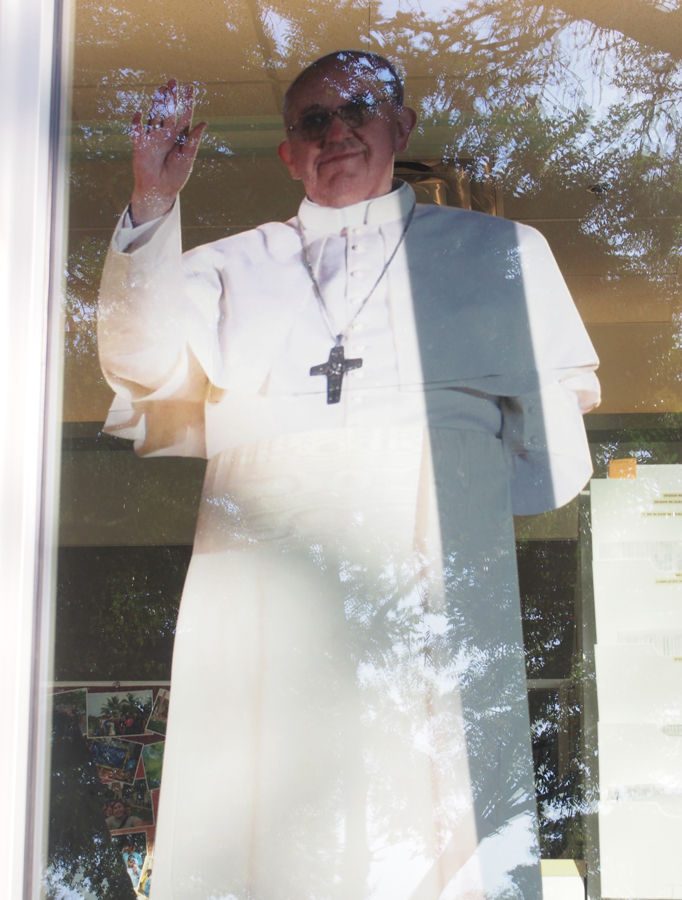Group discusses Pope Francis’ letter on environmentalism
The St. Edward’s community came together Wednesday to discuss Pope Francis’ encyclical on the environment.
As part of its “Fusion Discussion Group” series, the Center for Ethics and Leadership hosted a luncheon and conversation Wednesday on Pope Francis’ encyclical on environmentalism.
The discussion, which was co-sponsored by the Center for Religion and Culture and the Center for Ethics and Leadership, was open to anyone in the St. Edward’s University community and was centered on the implications of the Pope’s message about climate change and our responsibility to preserve “sister earth.”
“He is really perceived as so pastoral, so relational,” Jack Musselman, professor of philosophy, said of the pope. “His bringing (environmentalism) to the floor has been upsetting to some, but has drawn attention (to the issues) for others.”
Musselman, who was facilitating the discussion, was both supportive of the Pope’s message and critical of his diction, arguing that some of the phrases he used to appeal to his audience were not provocative or persuasive enough.
“When I am using my reusable bag or recycled dish, I am not thinking the ‘earth is my sister’,” Musselman said.
Although the actual encyclical was discussed only briefly, participants explored several critical topics characteristic of the recent dialogue on environmental changes including conservation, America’s wasteful culture and humanity’s overall role in both contributing to and preventing environmental decay.
The topic was chosen by Fr. Lou Brusatti and Musselman, who had mutual interests in the topic. Musselman agreed that the subject was timely and relevant and he was interested in attracting a larger and more diverse crowd of attendees by representing several departments at the event rather than only one or two.
Musselman, who seemed pleased with the turnout remarked, “Nobody talked about (the environment) in the 80’s. No one. Now it’s everywhere.”
Attendees discussed plausible solutions to environmental problems and though the general consensus in the room was that small lifestyle changes on behalf of each individual were positive steps toward improvement, some expressed their dismay at the prospect that their actions would have little impact.
In response, Jacques Mercier des Rochettes, one of the only people in the room who actually read the Pope’s encyclical, responded by explaining that individual decisions should not be made because they might produce an effect, but instead, because they are good for the soul.
“(God) cares about your soul more than anything else,” des Rochettes said.
Danney Ursery, professor of philosophy, offers extra credit to his students who attend the discussions, said that he was glad that students turned out to participate in an important discussion.
“I always find (the talks) interesting,” Ursery said of the fusion discussions. “There are no grades involved, there is no power structure … I think it is particularly refreshing. A lot of voices came in.”







